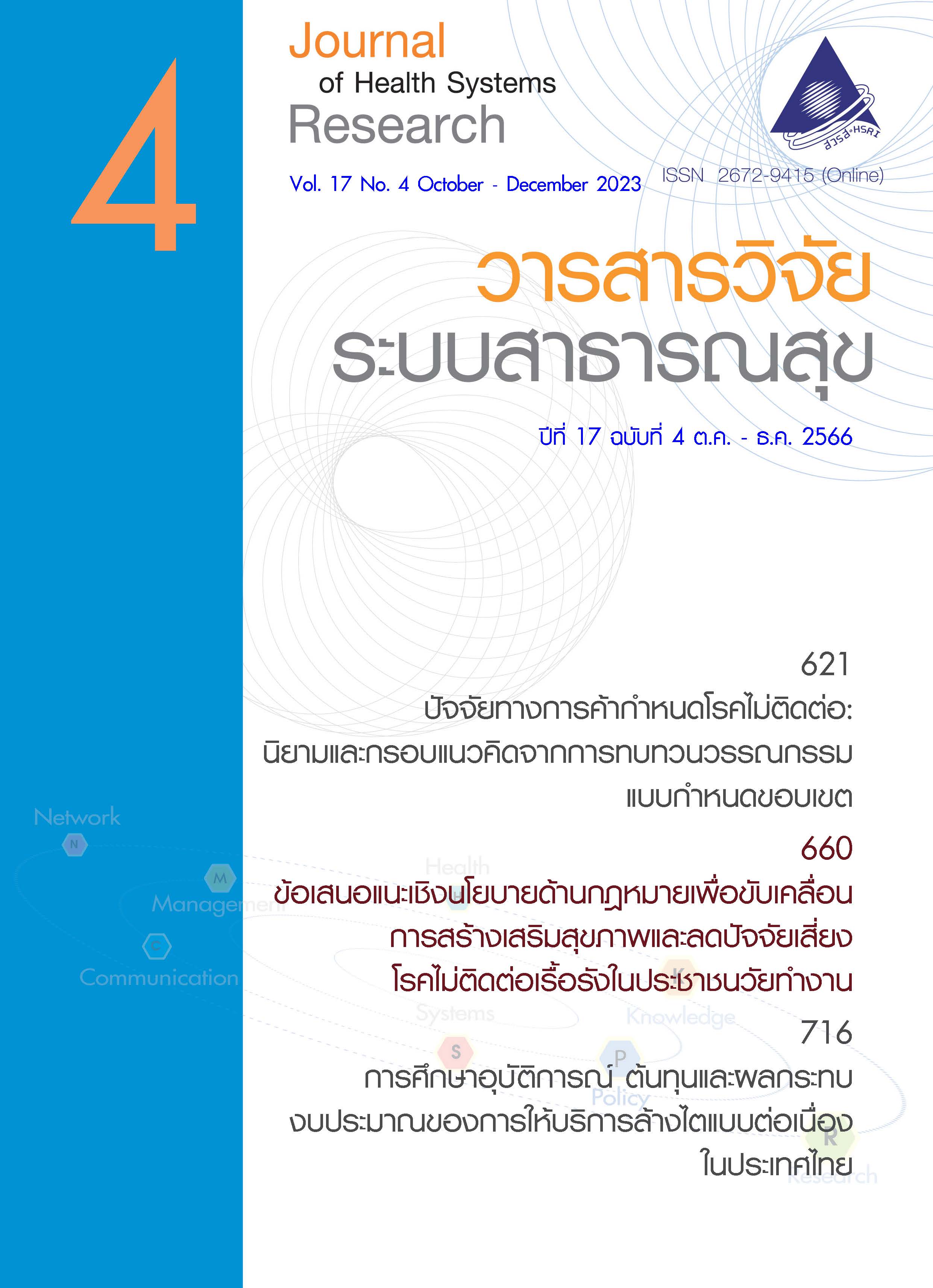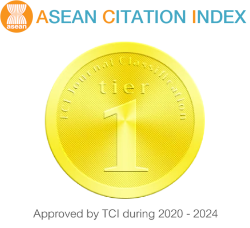Reflection on COVID-19 Remedial Measures Based on Group-Targeting Principle: A Case Study of Slum and Rural Communities, Ubon Ratchathani Province
Keywords:
COVID-19 remedial measures, slum community and rural community, social welfare, social inequalityAbstract
This article reflects on issues in COVID-19 remedial measures based on group-targeting principle. The article drew on document research combined with fieldwork research. Document research explored online sources of government COVID-19 remedial measures, including online research papers and articles discussing the socio-economic impacts of COVID-19 from national and international institutions and experts. Fieldwork research was a qualitative research study conducted in two communities: an urban slum community and a rural community in Ubon Ratchathani province. Data collection involved in-depth structured interviews with purposively selected 22 samples, as well as non-participatory observations over short period in both communities. The findings indicated that in the context of the pandemic, the major population suffered significantly and required urgent remedial measures. However, the targeting remedial measures did exclude affected individuals at the outset. During the implementation phase, the online registration screening had resulted in the exclusion of more affected individuals. While the recovery measures faced challenges in achieving success due to limited financial compensations compared to impacts, the delays in delivering economic and social recovery programs, and the inadequate social welfare designs. The present study recommended that the remedial measures should be applied on a universality principle, which needed no registration nor screening that expedited the remedial process, and avoided mis-exclusion of the affected individuals. By implementing the remedial measures prioritizing universal social welfare principle, a more allocative efficiency of remedial measures in future pandemic is foreseeable.
References
Phetprasert N. An overview synthesis of the development of the welfare system for the poor and the disadvantaged people in Thai society. Bangkok: Political Economics Studies Center, Faculty of Economics, Chulalongkorn University; 2003. 269 p. (in Thai)
Pitidon T, Pattarasakkamjorn W. Reducing inequality and creating fairness: the case study of state welfare card. Research report. Bangkok: College of Politics and Governance, King Prajadhipok’s Institute; 2019. (in Thai)
PPTV Online. Take a look at foreign COVID relief measures [internet]. 2021 Jan [cited 2022 Feb 6]. Available from: https://shorturl.asia/6uBpG. (in Thai)
Bank of Thailand. Summary of measures to heal and reduce the impact of COVID-19 foreign [internet]. 2021 [cited 2022 Feb 9]. Available from: https://www.bot.or.th/Thai/FinancialInstitutions/COVID19/Documents/Measure_Foreign.pdf. (in Thai)
Thongpho P. Guidelines for enhancing the effectiveness of assistance and healing for those affected by political violence. Research report. Bangkok: National Defense College; 2018. (in Thai)
Sangmanee R, Plasai C, Wongsukmontri K, Keawchai S, Keawnoonaun W. Evaluate the healing and restoration of the damaged and affected by unrest in the southern provinces: Narathiwat province. Princess of Naradhiwas University Journal 2013;5(4):11-28. (in Thai)
Khamhom R. Welfare and Thai society. 4th ed. Bangkok: Thammasat University Press; 2014. 360 p. (in Thai)
Thailand Development Research Institute. Go to a universal social welfare system by the year 2017. Research report. Bangkok: Office of the Health Promotion Fund; 2011. (in Thai)
Thamburtdee S. Nhookong V. Description of state welfare 9 aspects. Academic Forum document “Imagination towards an equal Thai society” 2021 Apr 3-4. Welfare State Network for Equality and Justice. Bangkok, Thailand. (in Thai)
Phongpijit P. COVID-19 is an opportunity to adjust to universal welfare. Declamation at the 11th Predi Talk [internet]. 2021 Jun 24. [cited 2022 Feb 6]. Available from: https://pridi.or.th/th/content/2021/07/754. (in Thai)
Ministry of Finance. Ministry of Finance news [internet]. 2020 Mar 26 [cited 2022 Feb 9]. Available from: https://shorturl.asia/BLcnU. (in Thai)
Kittiprapat S, Terdudomtham T, Pakthnapakorn P, Sorkjabok P. The social impact of the 2019 coronavirus pandemic (COVID-19) and the economic crisis. Research report. Bangkok: Ministry of Social Development and Human Security; 2020. (in Thai)
Ministry of Finance. Ministry of Finance news [internet]. 2020 Jan 26 [cited 2022 Feb 9]. Available from: https://shorturl.asia/bcX1n. (in Thai)
Government House. Government House news [internet]. 2021 May 5 [cited 2021 Jun 30]. Available from: https://shorturl.asia/aHfsj. (in Thai)
Taotawin P. Analyzing the remedial measures for COVID-19 affected people: a translocality perspective. In Juengsatiensup K. Duangwiset N. editors. COVID-19 harm, corona crisis: emerging diseases in social dimensions. Bangkok: Sirindhorn Anthropology Center; 2021. p. 77-122. (in Thai)
Chantarat S, Lamsam A, Adultananusak N, Ratanavararak L, Rittinon C, Sa-ngimnet B. Thai agricultural households in the COVID-19 crisis [internet]. 2020 May 15 [cited 2022 Jun 1]. Puey Ungphakorn Institute for Economic Research. Available from: https://www.pier.or.th/abridged/2020/11/. (in Thai)
Shalamwong Y, Jitsuchon S, Thareesang K. Impact of COVID-19 on the Thai labor market: empirical data impact of COVID-19 caused the Thai economic downturn and the unemployment rate was the highest in 20 years [internet]. Bangkok: Thailand Development Research Institute; 2020 Jun 29. [cited 2021 Nov 8]. Available from: https://tdri.or.th/2020/06/covid-19-labour-market-impact-in-thailand/. (in Thai)
Kapilakarn M, Nonthitipong W. Informal labour: impacts and challenges of COVID-19 era [internet]. Bangkok: Bank of Thailand; 2021 Mar 2021 [cited 2021 Nov 20]. Available from: https://www.bot.or.th/Thai/ResearchAndPublications/articles/Pages/Article_30Mar2021.aspx. (in Thai)
Think Forward Center. Fruit prices continue to fall: the government should urgently boost fruit prices [internet]. 2021 Aug 5 [cited 2022 Jun 1]. Think Forward Center, Move Forward Center. Available from: https://think.moveforwardparty.org/article/1565/. (in Thai)
Prachachat Business Online. Wasted loan budget? [internet]. 2021 Jun 4 [cited 2022 Feb 9]. Available from: https://www.prachachat.net/columns/news-680793. (in Thai)
Sriyai S. When COVID-19 remedial measures became evidence of the digital inequality that has not been healed [internet]. The Standard. 2020 Apr 13 [cited 2021 Nov 8]. Available from: https://thestandard.co/covid-19-remedial-measures/. (in Thai)
Visartpreecha B, Pintoptang P. The urban poor in the 2020s “consider” meaning from quantitative research in Bangkok and its vicinity. Research project’s progress meeting document “Changing urban poor in a changing urban society”, 2020 Jul 24. Bangkok, Thailand.
Ferreira, F. Prennushi, G. Ravallion, M. Protecting the poor from macroeconomic shock: an agenda for action in a crisis and beyond. Washington DC: World Bank; 1999.
Sukkhamnert, D. Universal basic income: Is it possible if Thai people have basic income for everyone? [internet]. 2021 Jun 4. [cited 2022 Feb 9]. Available from: https://progressivemovement.in.th/article/common-school/knowledge-market/4546/. (in Thai)
Downloads
Published
How to Cite
Issue
Section
License
Copyright (c) 2024 Journal of Health Systems Research

This work is licensed under a Creative Commons Attribution-NonCommercial-NoDerivatives 4.0 International License.
Journal of Health Systems Research is licensed under a Creative Commons Attribution-NonCommercial-NoDerivatives 4.0 International (CC BY-NC-ND 4.0) license, unless otherwise stated.




